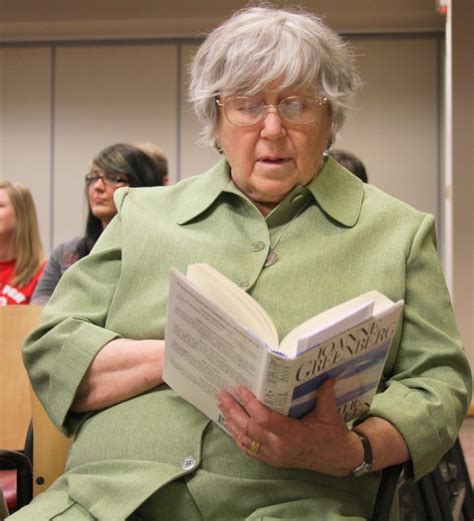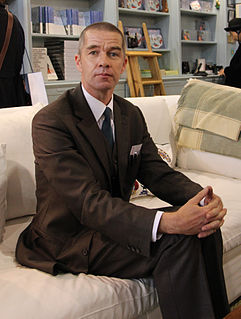A Quote by Friedrich Nietzsche
Why does man not see things? He is himself standing in the way: he conceals things.
Related Quotes
I once had a patient who used to practice the most horrible tortures on himself, and when I asked him why he did such things, he said, 'Why before the world does them.' I asked him then, 'Why not wait and see what the world will do?' and he said, 'Don't you see? It always come at last, but this way at least I am master of my own destruction.
A man becomes spiritual insofar as he lives a spiritual life. He begins to see God in all things, to see His power and might in every manifestation. Always and everywhere he sees himself abiding in God and dependent on God for all things. But insofar as a man lives a bodily life, so much he does he do bodily things; He doesn't see God in anything, even in the the most wondrous manifestations of His Divine power. In all things he sees body, material, everywhere and always - "God is not before his eyes." (Ps. 35:2)
Literally, no man ever sees himself as others see him. No photograph or reflection ever gives us the same slant on ourselves that others see. It has often been proved on the witness stand that no two people ever see the same accident precisely the same way. We see through different eyes and from different angles. But if we could see things as other people see them, we could come closer to knowing why they do what they do and why they say what they say.
How does one chip off the marble that doesn't belong? ... That comes about through five things: humility, reverence, inspiration, deep purpose, and joy. No great man has ever wise-cracked his way to greatness. Until one learns to lose one's self he cannot find himself. No one can multiply himself by himself. He must first divide himself and give himself to the service of all, thus placing himself within all others through acts of thoughtfulness and service.
If I'm a cop, and every time I see a young black youth - whether I watch them on TV, movies, or just see them hanging out - and they're not looking properly dressed, properly refined, you know, carrying himself, conducting himself proper hours of the day - things that a man does - you're going to have a certain fear and stereotype of them.
Unless a man has pity he is not truly a man. If a man has not wept at the worlds pain he is only half a man, and there will always be pain in the world, knowing this does not mean that a man shall dispair. A good man will seek to take pain out of things. A foolish man will not even notice it, except in himself, and the poor unfortunate evil man will drive pain deeper into things and spread it about wherever he goes.
Why does man freeze to death trying to reach the North Pole? Why does man drive himself to suffer the steam and heat of the Amazon? Why does he stagger his mind with the mathematics of the sky? Once the question mark has arisen in the human brain the answer must be found, if it takes a hundred years. A thousand years.
He who desires to become aware of the hidden light must lift the feeling of fear up to its source. And he can accomplish this if he judges himself and all he does. For then he sheds all fears and lifts fear that has fallen down. But if he does not judge himself, he will be judged from on high, and this judgment will come upon him in the guise of countless things, and all the things in the world will become messengers of God who carry out the judgment on this man.
There is nothing more terrible, I learned, than having to face the objects of a dead man. Things are inert: that have meaning only in function of the life that makes use of them. When that life ends, the things change, even though they remain the same. […] they say something to us, standing there not as objects but as remnants of thought, of consciousness, emblems of the solitude in which a man comes to make decisions about himself.










































